Expert’s Rating
Pros
- Great everyday performance
- Very affordable
Our Verdict
The Teamgroup MP44L is a lower-tier PCIe 4 performer on benchmarks, however real-world speed is very good and there’s no arguing its low price.
Best Prices Today: Teamgroup MP44L PCIe 4 NVMe SSD

$96.99
While its benchmark numbers may not be showy, the Teamgroup delivers the goods in the real world. It’s also one of the most affordable NVMe SSDs we’ve yet tested. In large part thanks to a DRAM-less, HMB (host memory bus) design.
Note: This review is part of our ongoing roundup of the best SSDs. Go there to learn more about competing products, what to look for in an SSD, and buying recommendations.
Teamgroup MP44L NVMe SSD: Design and specs
You can probably guess the basics of the MP44L if you’ve read any of our reviews. It’s the standard 2280 (22x80mm) form factor and the pricing (see below) is a huge clue as to the aforementioned DRAM-less (HMB) design. The controller is Phison’s PS5021-E21T while the NAND is 176-layer (3D, stacked, etc.) TLC (triple-level cell/3-bit).
The 1TB version we tested is single-sided and therefore well-suited to laptop upgrades. Being HMB, the MP44L’s caching is done by treating a portion of the TLC NAND as SLC (single-level cell/1-bit) by writing a single bit instead of three. Writing one bit requires far less error checking and is consequently a lot faster.
The MP44L is available in 250GB ($39), 500GB ($57), 1TB ($97—which we tested), and 2TB ($182) capacities. The warranty period is five years, which is limited by a 300TBW (terabytes that may be written) per-500GB wear rating. The exception being the 250GB model which has a 200TBW rating.
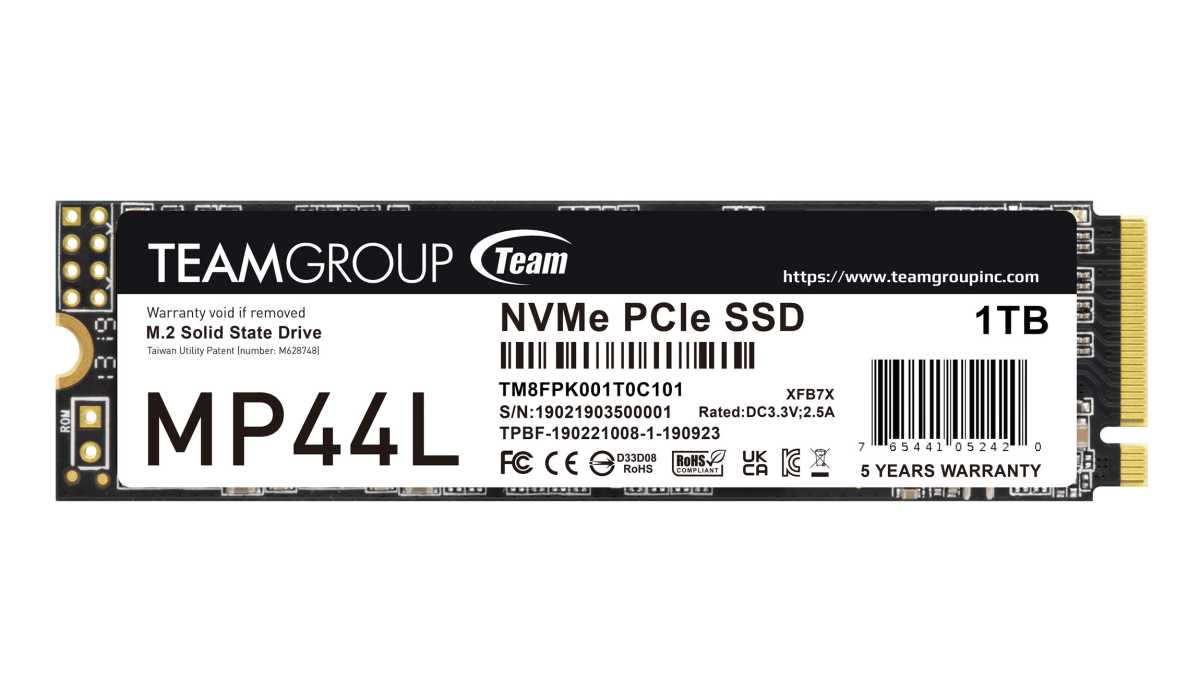
Teamgroup MP44L NVMe SSD: Performance
Though the MP44L didn’t come close to the top dogs in the synthetic benchmarks, it was a good real-world performer. I’ve included the best-in-class WD SN850X in the charts to illustrate the difference, as well as to point out how sustained real-world performance isn’t all that different.
DRAM designs such as the SN850X do offer significant benefits in random write ops, but otherwise DRAM-less designs such as the MP44L and Silicon Power UD90 (also included in the chart) compete well.
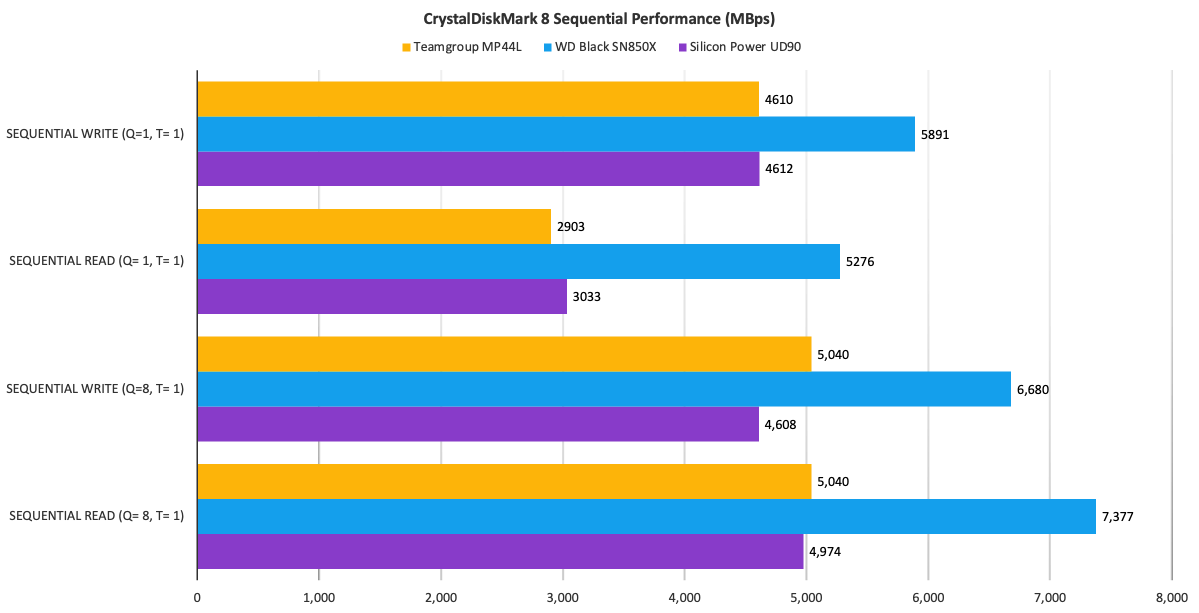
As you can see above and below, judging merely by CrystalDiskMark 8, you’d probably think the MP44L is a slow SSD. It is compared to a WD SN850X in synthetic benchmarks, but the real world is another matter.
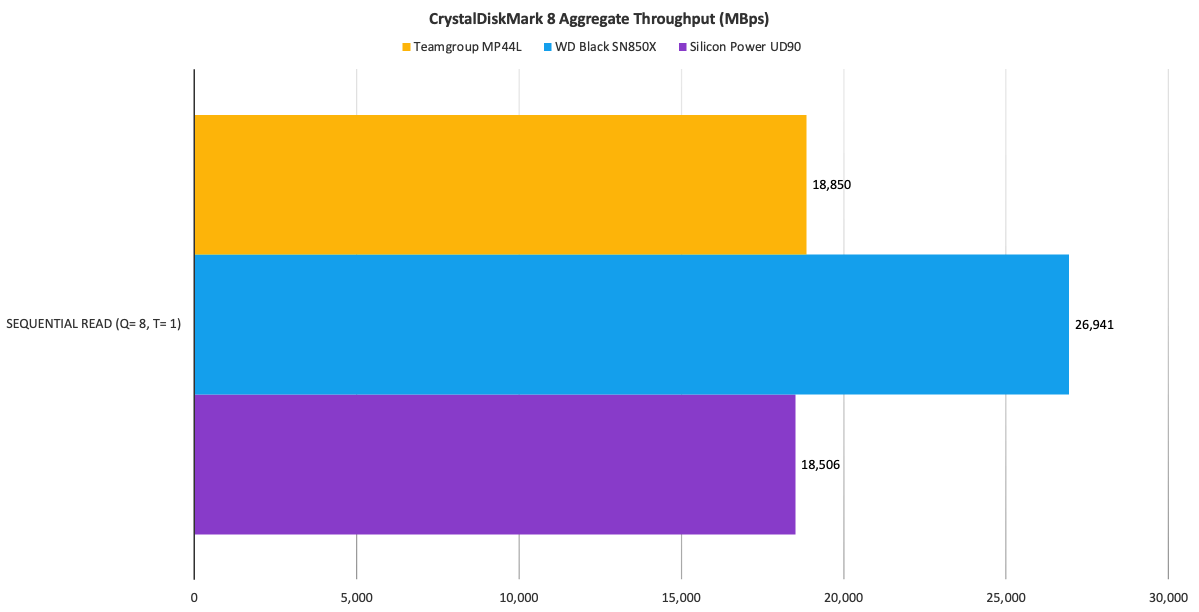
Below you can see that real-world 48GB transfers don’t seem to care much about DRAM. Random write ops will, but not as much as you might think.
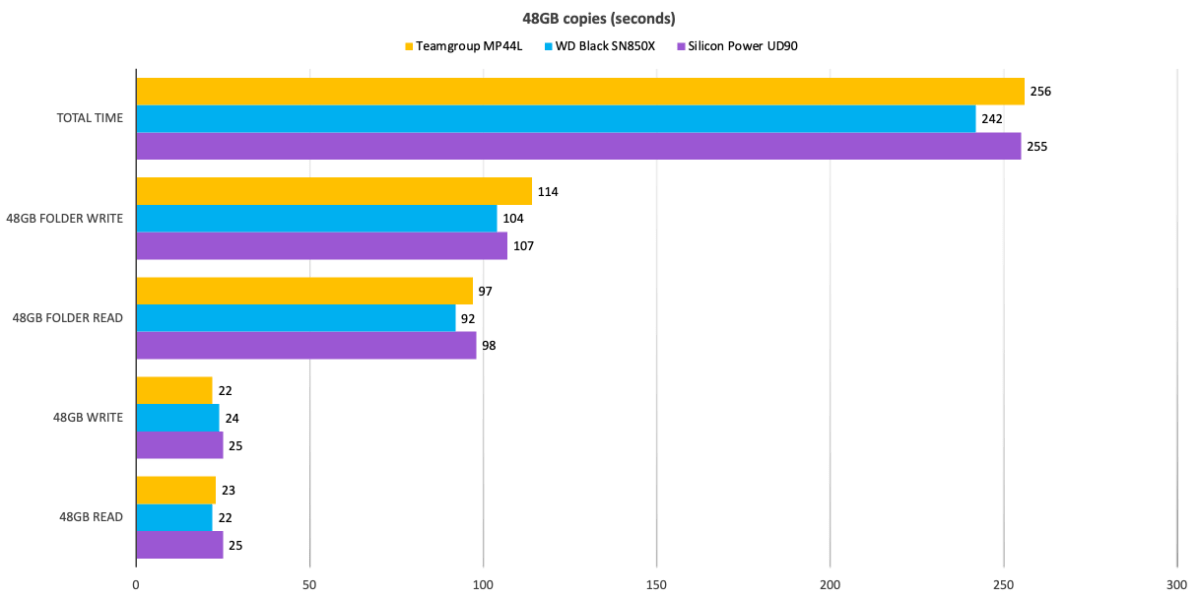
Where our 1TB test MP44L did fall off the pace was in the long 450GB write. This is designed to show weaknesses in caching, and it shows up more with 1TB units than 2TB SSDs due to less NAND being allotted for SLC cache.
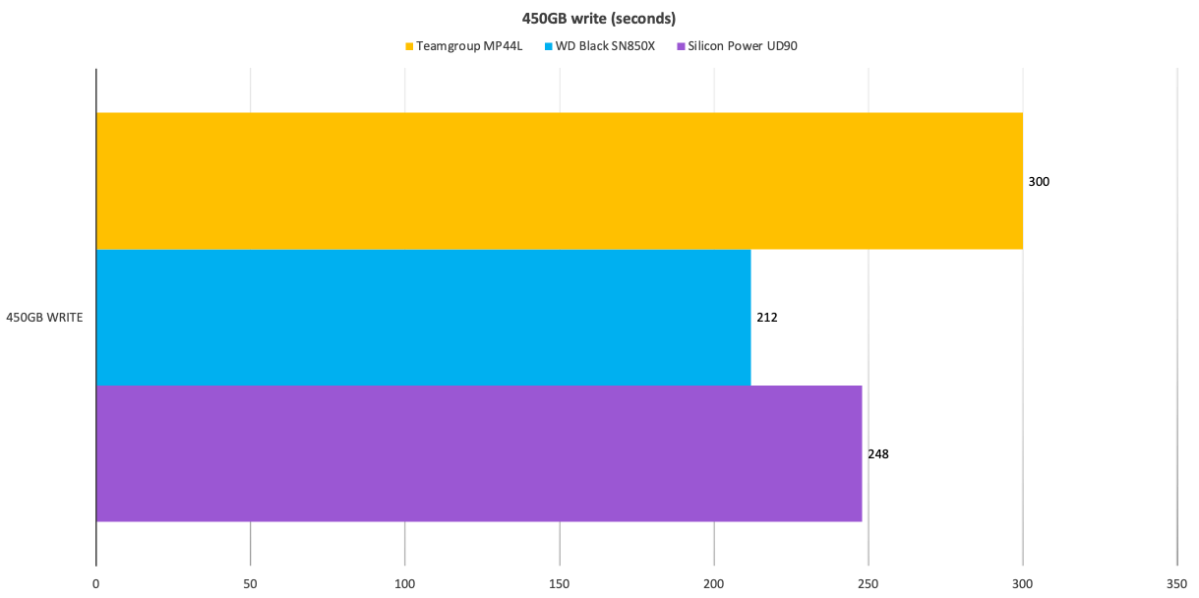
Below you can see the slightly erratic copy speeds displayed by the MP44L. This is indicative of the controller dynamically allotting more NAND for cache. That said, the time remaining is misleading as it was calculated during a dip, not a peak. The MP44L took only 5 minutes total and the 2 minutes, 15 second Windows 11 estimate shown actually proved to be less than a minute.
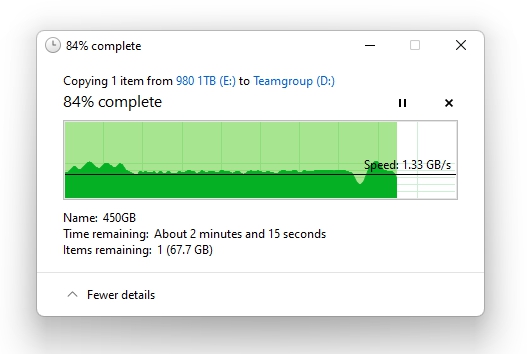
For everyday use, the MP44L is a good performer. After all, how many times are you going to write 450GB in one go?
Internal drive tests currently utilize Windows 11 64-bit running on an MSI MEG X570/AMD Ryzen 3700X combo with four 16GB Kingston 2666MHz DDR4 modules, a Zotac (Nvidia) GT 710 1GB x2 PCIe graphics card, and an Asmedia ASM3242 USB 3.2×2 card. Copy tests utilize an ImDisk RAM disk using 58GB of the 64GB total memory.
Each test is performed on a newly formatted and TRIM’d drive so the results are optimal. Over time, as a drive fills up, performance will decrease due to less NAND for caching and other factors. The performance numbers shown apply only to the drive of the capacity tested. SSD performance can vary by capacity due to more or fewer chips to shotgun reads/writes across and the amount of NAND available for secondary caching.
Should you buy the Teamgroup MP44L?
Teamgroup’s MP44L is good-performing bargain NVMe SSD. While it may not deliver the absolute fastest peak performance, it’s certainly fast in the grand storage scheme and will save you quite a bit of money for only a slight and largely unnoticeable (subjectively) performance penalty.




